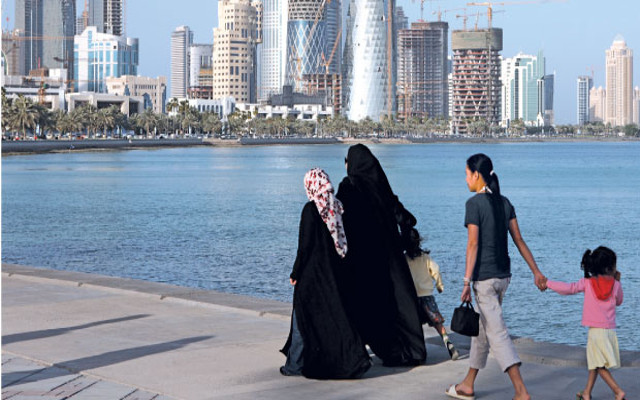Migrant domestic workers are set to receive greater protection in Oman, according to an announcement made last week by Oman’s Ministry of Manpower.
On April 27, the advisor to the Minister of Manpower, Salem Al Saadi, told the Times of Oman that the government is planning to legalize the rights of migrant domestic workers (MDWs) and afford greater protection. Al Saadi made no mention of the type of legal safeguards to be afforded to domestic workers, but indicated that “Most likely, we may have a separate system to protect their rights if it’s not going to be included in the labour law.” If the measures are enacted and properly enforced, Oman would become the fourth Gulf state to offer some degree of protection to MDWs, who remain largely excluded from labor laws across the Gulf Cooperation Council (GCC).
Female MDWs, who often work as maids in private homes, are the most vulnerable group of migrant workers in the Gulf. Like their male counterparts employed in the construction and service sectors, MDWs are governed by a highly controversial sponsorship system known as kafala, in which a worker’s visa and residency permit is tethered to his/her employer. The kafala system impedes the ability for a worker to change and/or leave jobs without employer consent, and renders the worker entirely dependent on the goodwill of his/her sponsor. Due to scant protection in national labor laws, however, female MDWs are rendered even more vulnerable to abuse at the hands of their employers.
Oman appears to be following in the footsteps of Kuwait. In June 2015, Kuwait enacted the country’s first piece of legislation regulating the rights of MDWs. The law grants domestic workers the right to a weekly day off, a 12-hour working day with rest, 30 days of annual paid leave, and end-of-service benefits, among other rights. Human Rights Watch cites the law as a significant step forward, but argues that it falls short on several accounts. Several protections found in the general labor law are not included in the law for domestic workers, such as a limit to the number of hours worked per week as well as daily rest periods. The law also fails to stipulate clear enforcement mechanisms such as labor inspections, specify penalties for employers who confiscate workers’ passports, and allow collective bargaining rights.
Female MDWs largely hail from South Asian countries, including the Philippines, Indonesia, and Sri Lanka, as well as sub-Saharan Africa. They remain entirely excluded from labor laws in Qatar and the United Arab Emirates. Kuwait’s law offers the most protection, while Bahrain and Saudi Arabia offer minimal protection. Bahrain’s 2012 labor law fails to provide basic protections such as a minimum wage, weekly rest days, and limits on working hours. Domestic workers can be required to work up to 15 hours a day in Saudi Arabia, despite a 2013 regulation that grants domestic workers nine hours of rest every 24 hours, as well as one day off a week.
Due to pressure levied against the Gulf states for their inadequate treatment of MDWs, the six GCC member states undertook efforts for years to adopt a unified labor contract for domestic workers. The effort, however, failed in early 2015. In response to rampant abuse of MDWs, countries like Indonesia have issued moratoriums on sending their nationals to the Gulf countries to seek employment as domestic workers.
While GCC states have taken some steps to protect MDWs, significant gaps remain. The GCC states should adopt a unified labor contract for domestic workers, bring their labor laws in line with International Labor Organization standards, extend labor law protections to domestic workers, and undertake efforts to reform the kafala system.





